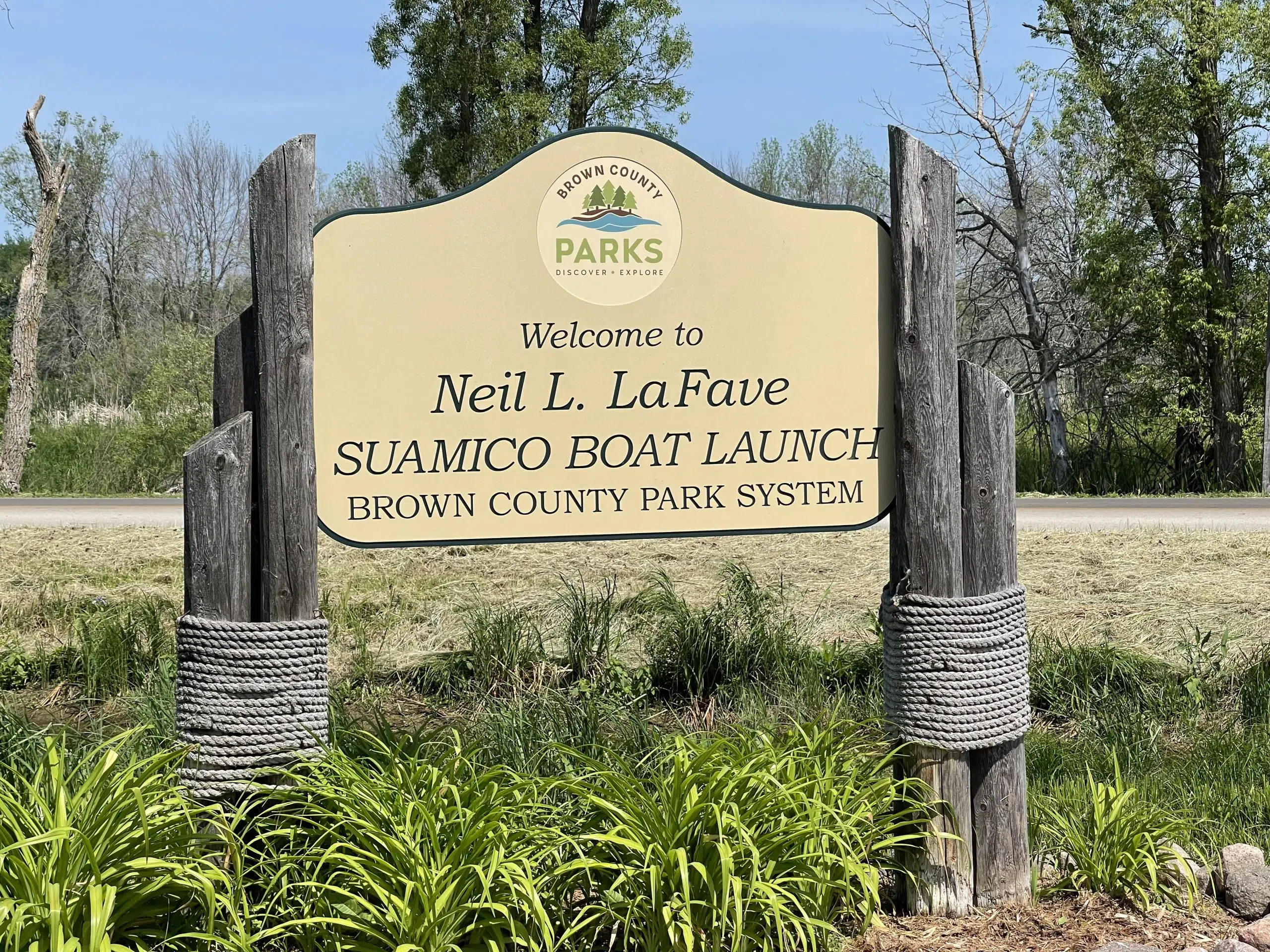SUAMICO, WI (WTAQ) – The Suamico Boat Landing has officially been named after Neil LaFave, a part-time DNR warden who was killed on the job back in 1971.
LaFave’s daughter, Nicki Degreef, calls the honor ‘remembrance closure’ for her family.
“It’s overwhelming. All of the support we’ve received from the village, Brown County, the residents,” Degreef said. “Now the Village of Suamico and residents in time beyond this will look into this story and notice that it was just a horrible situation that happened.”
Degreef says the situation is now used for educational purposes within the DNR.
On September 24th, 1971, LaFave was working as a technician and ‘special’ warden, which was typically someone who has a different full-time career and assists with environmental efforts in their spare time. He had gone to the Sensiba State Wildlife Area to place ‘no hunting’ signs.
“Mom was planning a surprise party for dad on his 32nd birthday,” said LaFave’s daughter, Nicki Degreef. “He did not come home that night. I was two. My brother Lonnie was four.”
LaFave had been shot by a poacher he apparently was attempting to confront in the wildlife area. Don Zuidmulder was the district attorney and prosecutor against the man who pulled the trigger.
Zuidmulder was on the scene the following morning. That’s where he says he observed muddy waders in the back of LaFave’s truck, as well as a half-smoked cigar in the cabin area.
“Neil LaFave represented the best in every public servant, because his day was done. He could’ve gone home. He would still be with us. But like every dedicated law enforcement officer and every public servant, your day is not done as long as duty calls you,” Zuidmulder said. “And duty called him from that truck to a horrific end.”
LaFave was reportedly shot with a .22 and a 30-06.
It took 65 days of investigators combing the area for shell casings and other evidence, as well as the utilization of the first wiretap in the state’s history.
“The wiretapping of a digital phone, it went ‘click, click, click’ – it would be so primitive to anyone looking at it today,” Zuidmulder said.
That wiretap led investigators to a conversation between the suspect and his mother, where he reportedly asked if his gun was hidden in a place where nobody could find it. That’s what gave police the green light for a search warrant.
“We were able to get the 30-06. We put that together, we fired it, the crime lab said that was the murder weapon,” Zuidmulder said. “When you are one of us, and when we have a fallen comrade, there is nothing that we will not do, there is no resource that you cannot call upon that will not be made available to you.”
A jury convicted the shooter, who was then sentenced to life in prison. Zuidmulder says the man threatened him and the judge, escaped from prison, and was later killed in a shootout with law enforcement.
Zuidmulder says the concept of wildlife reserves was fairly new, and hunters weren’t fully welcoming to the idea at the time.
“Sensiba was one of those responses to the idea that unless we become proactive in protecting our wildlife in a place where they can be safe, then we’re ultimately going to arrive at the passenger pigeon. They’ll be extinct,” Zuidmulder told WTAQ News. “This was kind of the beginning of those efforts. So we set that aside and had to educate people that ‘well, you hunted there before but you can’t anymore.’”
He says the hunting population has now completely bought into the idea that conservation and preservation are needed.
Zuidmulder ended his comments to the crowd by singing the first refrain of Taps:
Day is done, gone the sun,
From the hills, from the lake, from the skies.
All is well, safely rest, God is nigh…
“Neil, your day is done. God rest, and God give you peace.”





